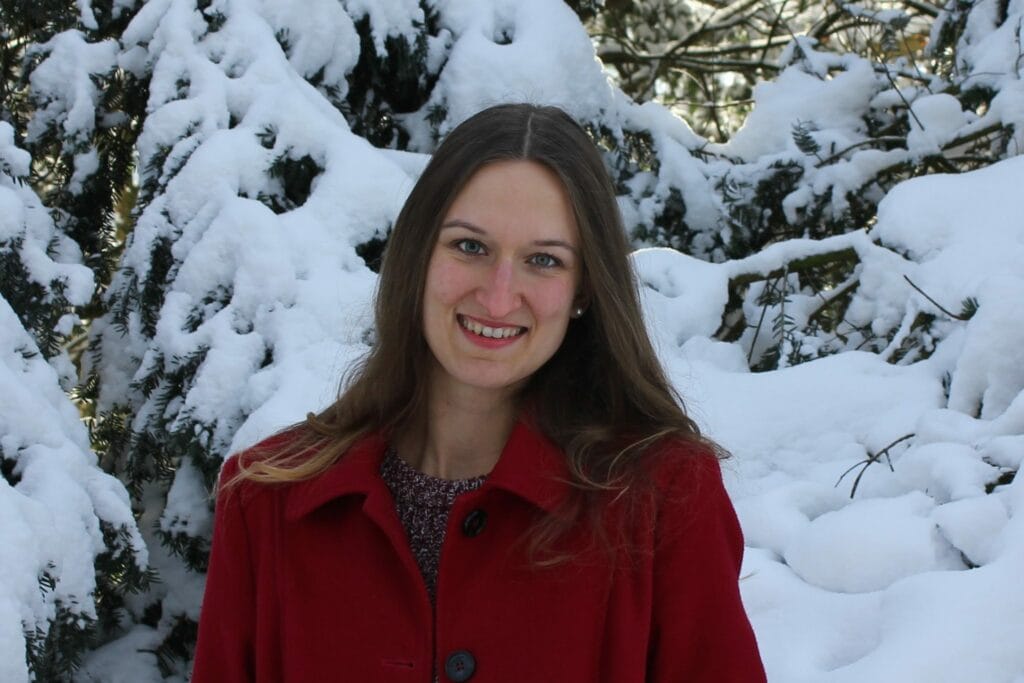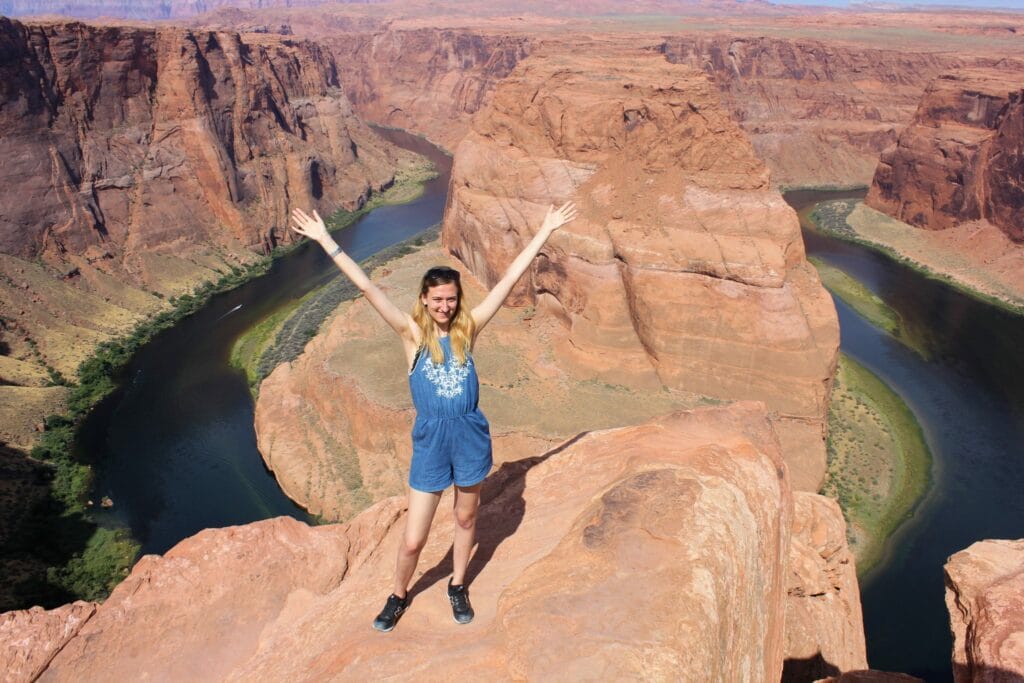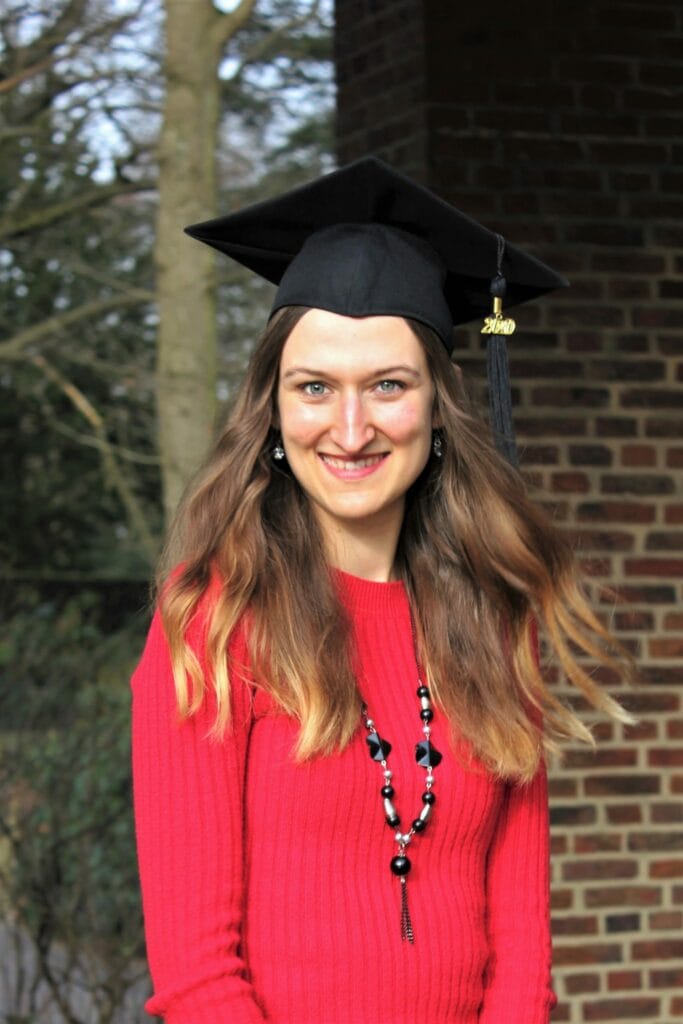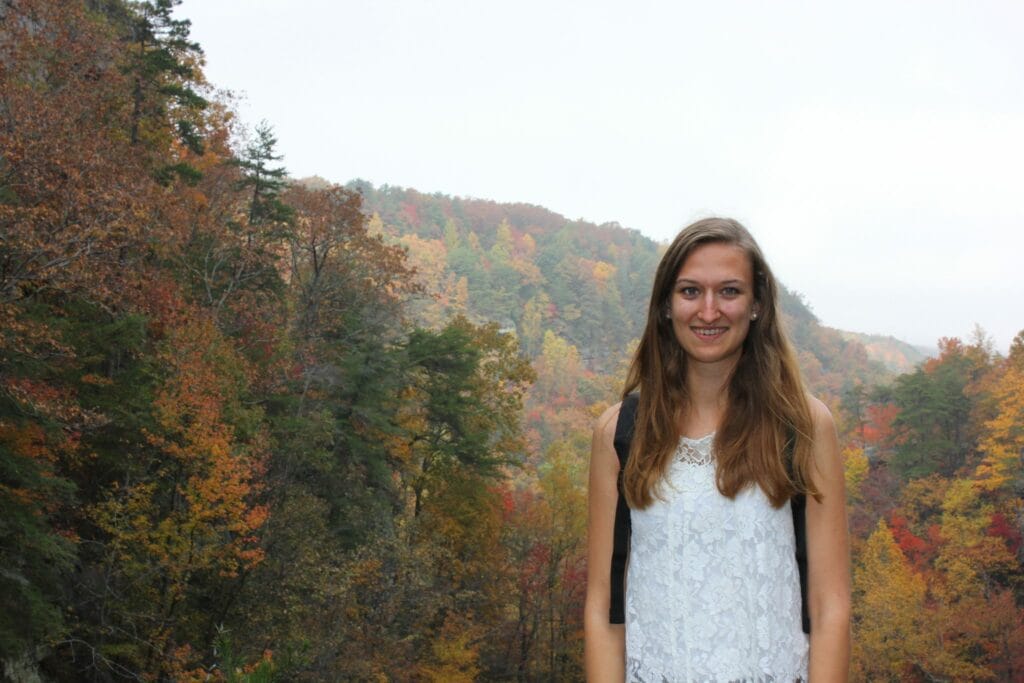- Über uns
- Wer wir sind
- Alena P.
Alena P.

My name is Alena and I was diagnosed with unilateral retinoblastoma at the age of 2 1/2 – my parents to be precise, as I have no memories of that time due to my young age.
I only remember the years of check-ups in Essen, which became a habit for all of us and were combined with visits to Gruga Park or Centro.
Fortunately, it was sufficient to surgically remove my right eye so that no additional chemotherapy or radiotherapy was necessary.
That was 22 years ago now and for some years now I have also found the courage to talk about my illness.
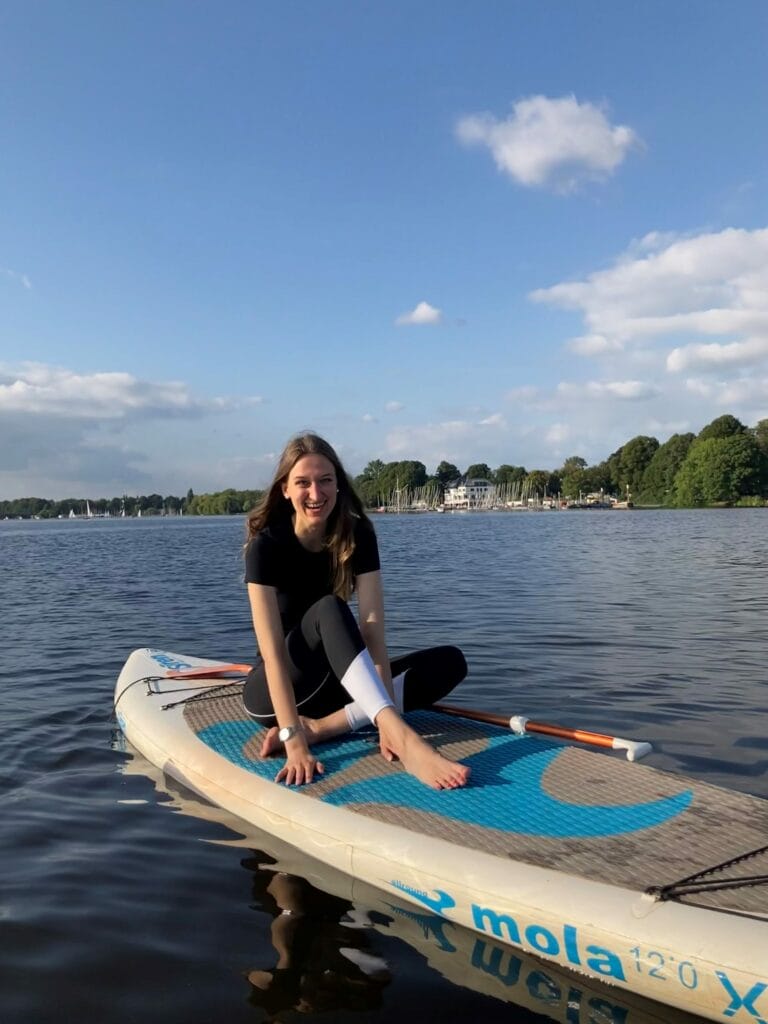
During my childhood, I just wanted to be like all the other children, to be “normal”.
When I think back to that time now, I ask myself: “What does normal actually mean?”
At the time, however, I wasn’t so aware of this, so I always pretended I didn’t know what the other children were talking about when they asked me about my squint.
On school trips, I secretly cleaned my prosthesis in the teacher’s room or when no one else was in the washroom.
Even my friends only knew about my condition because my parents had told their parents.
In sports lessons, it was more important to me to be treated like everyone else than to tell my teachers about my disability.
I willingly accepted lower grades in sports such as table tennis or badminton because of my limited field of vision so that I wouldn’t get special treatment.
This period of repression continued until senior school, when the subject of genetics was dealt with in the advanced biology course.
The information about genetic defects and hereditary diseases suddenly interested me so much that I started to think about my condition.
When our teacher brought us a final exam from the previous year to practise on and there was an assignment about retinoblastoma, I really wanted to find out more about my condition and started to read up on it.
My strong interest in genetics even led to me starting to study biology to become a teacher.
Nowadays, if someone asks me about my eye, I don’t come up with any excuses, I just tell them what happened to my eye.
I feel that the opportunity to relieve other sufferers and their parents of their fears and worries about the future is a huge opportunity that I would like to seize as a new encourager.
Although I had my initial difficulties with the condition, I led an absolutely normal life at all times.
Apart from the situations in which other children pointed out my eye to me, I didn’t even realize that I only had one eye.
As I have no memories of the time when I had two healthy eyes, it is completely normal for me to only be able to see with one eye.
The restriction of my field of vision is hardly noticeable anymore, so I was able to get a driving license (with an ophthalmologist’s certificate, the normal eye test at the optician wasn’t enough) and I can also do everything I want in my free time.
During my studies, I studied at a university in the USA for six months and will start my traineeship as normal after completing my Master’s degree in the spring.
What I would therefore like to pass on to other affected people and their parents is the following: Life after retinoblastoma is not much different from that of people without retinoblastoma.
Sometimes we may have to take small detours (such as the more complex eye test for a driver’s license or lifelong check-ups at the ophthalmologist), but this cannot stop us from doing what we want and enjoying life.
And if you have initial problems with the disease like I did, you are not alone, as you can see.
However, I can tell you that it’s not so bad to talk about your illness and really good things can come out of it – I’m pretty sure, for example, that it was only my courage and openness about my situation that helped me get a partial scholarship for my semester abroad.
Alena P.
Encourager
